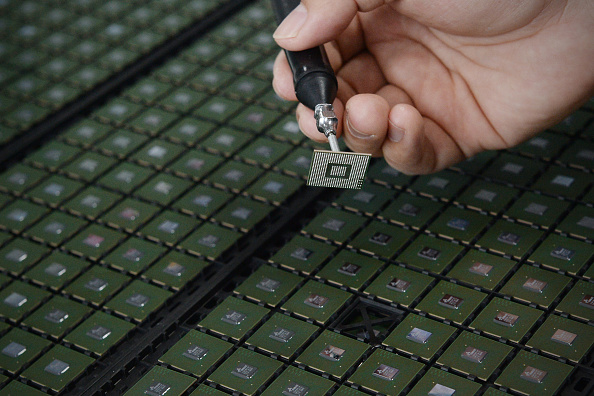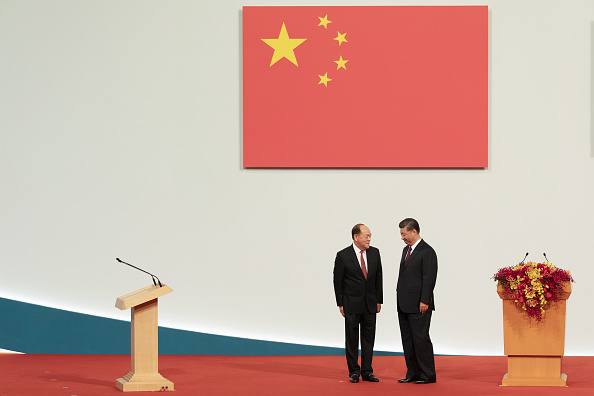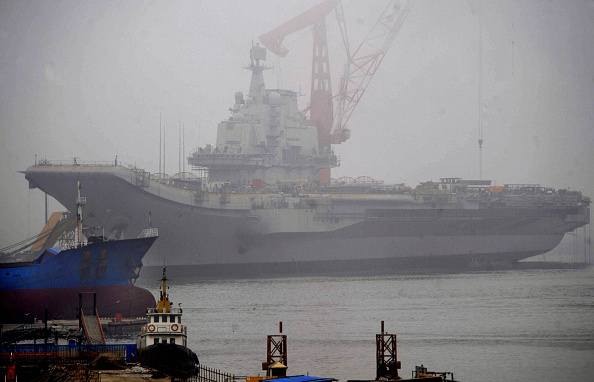
 A Level Playing Field
A Level Playing FieldThe trade war may have reached a temporary reprieve with the Phase One deal, but tensions continue to simmer over outstanding issues such as intellectual property and forced technology transfers. Stoking the embers, President Trump is seeking to limit the number of sophisticated technology transfers to China on items such as quantum computing and 3-D printing technologies, out of concern for national security.
Prompted by a 2018 law that seeks to withhold sensitive technologies from competing nations, the administration is now finalizing the rules, which will seek to establish a level playing field for American companies working overseas. The rules will be submitted to international bodies to ensure that the U.S. is not the only country implementing them. "Based on their titles, the rules appear to be narrowly tailored to address specific national security issues, which should go a long way to calming the nerves of those in industry concerned that the administration would impose controls over broad categories of widely available technologies," said Kevin Wolf, former assistant secretary of commerce for export administration.
 The Good Student
The Good StudentChina reclaimed both Macau and Hong Kong back from colonial powers in the late 1990's, setting a "one country, two systems" policy for both islands that generally allows more civil liberties than in mainland China. While some Hong Kong residents have chafed recently at concerns of heightened influence of the PRC, Macau has been far more tolerant. The unrest in Hong Kong lies in stark contrast to the stability in Macau, which has been more accepting of a closer relationship with Beijing.
President Xi Jinping is currently wrapping up the 20th anniversary celebrations of Macau's return to the mainland from Portuguese rule, and has held up Macau as a shining example of a "good student." With an economy vastly more dependent on the mainland, and far fewer residents than Hong Kong, Macau was praised by a senior official on December 3 for having grasped the "spirit of the central government".
 An Elite Power
An Elite PowerChina's first domestically built aircraft carrier officially joined the People's Liberation Army this week, marking a major step towards China achieving a world class navy. President Xi Jinping presided over a grand commissioning ceremony in Hainan, where the vessel will be based, right at the doorstep of the South China Sea. China is now among a handful of nations with more than one carrier, a development seen as a direct challenge to U.S. dominance over the seas.
While less technologically sophisticated than America's carriers, China's vessels are a symbol of the ambitious military power that the country has earned in recent years. China has the world's second largest military budget, after the U.S., and is likely to continue flexing its muscles in the South China Sea to assert its influence in the region.
Prepared by China-US Focus editorial teams in Hong Kong and New York, this weekly newsletter offers you snap shots of latest trends and developments emerging from China every week, while adding a dose of historical perspective.
- 2019-12-13 It’s a (Limited) Deal!
- 2019-12-06 An Arbitrary Deadline
- 2019-11-22 On or Off Again?
- 2019-11-15 Counterweight Critique
- 2019-11-08 "I haven't agreed to anything"
- 2019-11-01 Don’t Hold Your Breath
- 2019-10-25 Weaponizing Diplomacy
- 2019-10-18 Economic Shudders
- 2019-10-11 A “Big Day of Negotiations”
- 2019-10-04 Birthday Celebrations
- 2019-09-28 A World Split in Two?
- 2019-09-20 Another Round
- 2019-09-13 Olive Branch or Olive Twig?
- 2019-09-07 The Unwinnable War?
- 2019-08-31 “Sorry, it’s the way I negotiate”
- 2019-08-23 Tit for Tat
- 2019-08-17 Slowdown Ahead?
- 2019-08-09 Yuan on the Rocks
- 2019-08-02 Ratcheting Up the Crisis
- 2019-07-26 Playing Defense